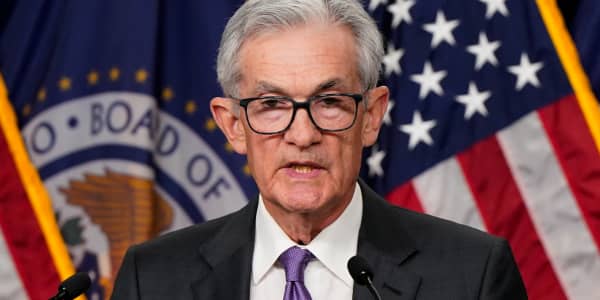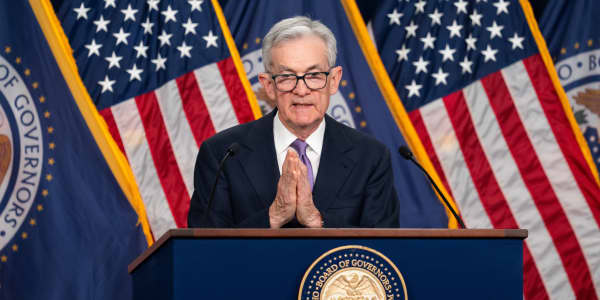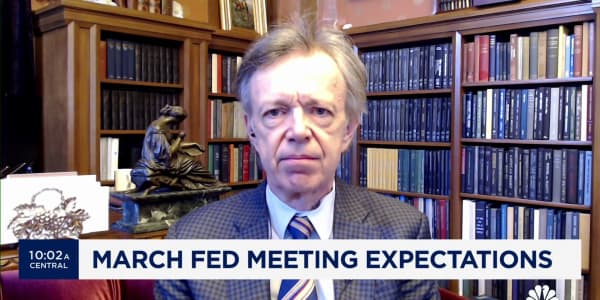
Wall Street sees the Federal Reserve and its interest rate hike as down, but decidedly not out.
Ninety-five percent of the 42 respondents to the CNBC Fed Survey predict no rate hike at the March meeting, which begins Tuesday. A decision comes on Wednesday followed by a news conference from Fed Chair Janet Yellen.
But nearly all the economists, fund managers and strategists believe that the U.S. central bank's next move will be to raise interest rates and, on average, believe that next hike will come in June. In fact, 83 percent say the Fed's next hike could come in June or even earlier, with a small minority saying April or May.
"Since the last FOMC meeting, U.S. GDP tracking estimates have moved up, the unemployment rate has ticked down, core inflation has firmed, the US dollar has sold off, and broader financial conditions have eased modestly," wrote Neil Dutta, head of economics at Renaissance Macro Research, in response to the survey.
On average, respondents see the Fed hiking twice this year, two fewer hikes than the median forecast of members of the rate-setting Federal Open Market Committee. That number will likely come down after the Fed releases on Tuesday a new set of FOMC projections, the first of the new year.
Jack Kleinhenz of Kleinhenz & Associates sees the better economic data, but still believes the Fed "will remain in a holding pattern until some of the world worries have been reduced."
Respondents to Fed survey are also more optimistic on stocks. The is forecast to end about 3 percent higher this year and 9 percent higher by the end of 2017. Those forecasts had come down sharply during the recent market sell-off.
Yet, while forecasts for the 10-year yield came down with the sell-off, they have not rebounded. Treasury yields are seen rising from their current levels but the forecast remains muted. The yield, currently at 1.96 percent, is seen rising to just 2.34 percent by the end of the year, about 20 basis points less than had been forecast in the January survey. The yield in 2017 is projected to increase to 2.83 percent, about on par with the prior survey.
Interestingly, the outlook for inflation has worsened, though it still remains low. This year, the consumer price index is forecast to rise to 2.14 percent, about the same as in January, but in 2017, inflation is seen going up to 2.41 percent, about 10 basis points worse than the prior survey.
"Rising core inflation and falling unemployment should have a data-dependent Fed raising rates next week. It is unlikely to. Communications are a mess," said John Ryding, chief economist at RDQ Economics.
The risk of the U.S. entering recession has come down to 24 percent from its recent high of 29 percent in January. Global economic weakness is seen as the biggest threat to the economic recovery, while tax and regulatory policies are second. GDP is expected to remain around 2 percent for this year and next.
And there are also political worries. "Beyond global economic weakness we worry political rhetoric and the outcome of the presidential election could negatively impact the market, as investors never like uncertainty," said John Roberts, director of research at Hilliard Lyons. "Political polarization is certainly not positive for the equity markets."
The CNBC survey was conducted March 10 and 11.






